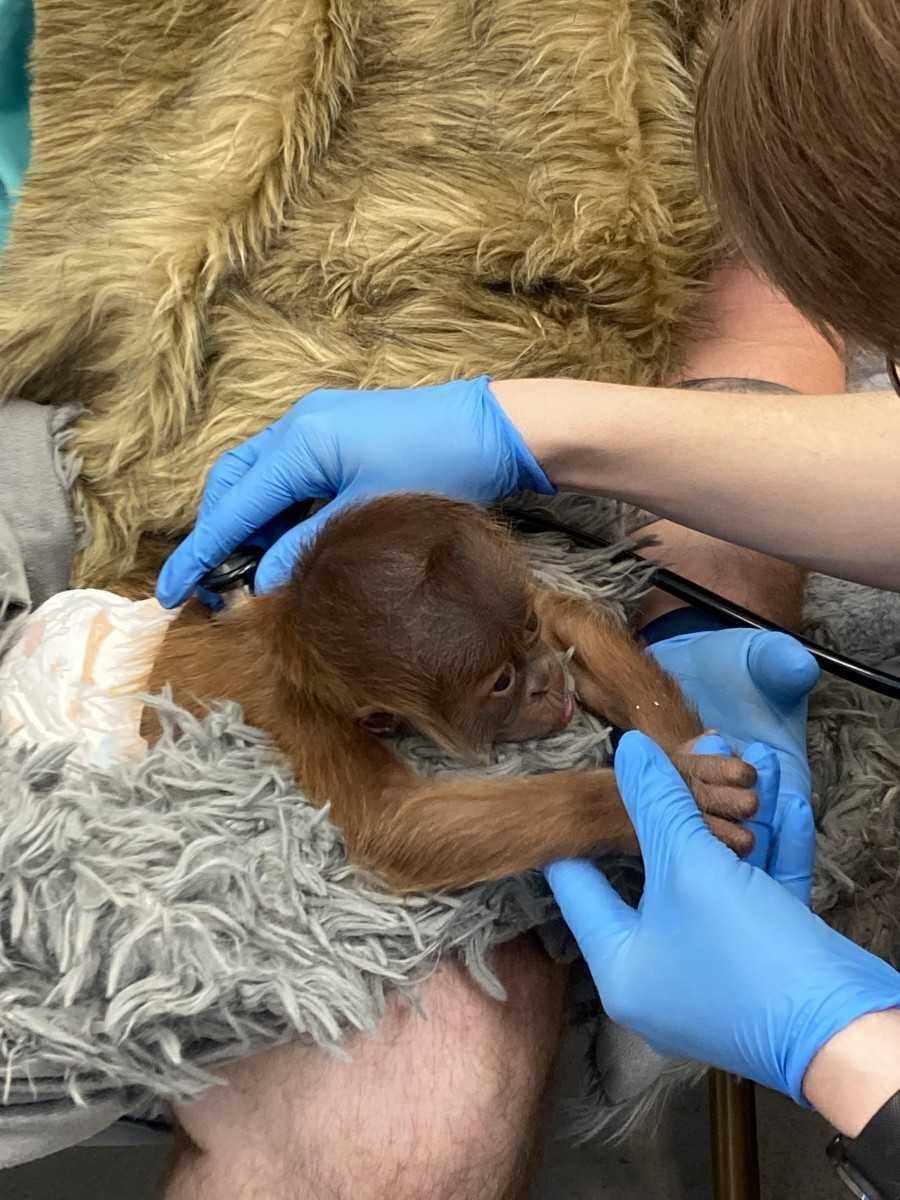Audubon’s baby orangutan continues to have health struggles

Audubon's baby orangutan continues to have health struggles.
By WDSU Digital Team
Click here for updates on this story
NEW ORLEANS, Louisiana (WDSU) — Audubon Zoo’s newborn orangutan continues to get around-the-clock care with zoo veterinarians and Children’s Hospital.
The zoo turned to the hospital after the infant showed signs of weakness and lack of nursing.
Zoo officials said the infant continues to struggle with suckling, but additional supplemental tube feeding has proven successful.
“Our dedicated team is awaiting more tests results to get a better idea of the infant’s overall health and if there is confirmation of central hypothyroidism. We cannot begin thank our primate care staff, veterinarians, and advisors from Children’s Hospital New Orleans and the Orangutan Species Survival Plan enough. We also deeply appreciate the support the community has shown our little guy,” Audubon Zoo said in a statement on the orangutan’s condition.
Based on concerns about the infant’s body temperature and weight, the team intervened to hand-rear and bottle-feed the infant until it can safely be reunited with Menari, according to zoo officials.
“The infant’s care team also noticed that his suckling response was weak and inconsistent,” Audubon senior veterinarian Bob MacLean said in a statement. “Children’s Hospital New Orleans offered their support for the critically endangered infant by providing the expertise of a clinical speech pathologist and lactation specialists. The lactation specialists are working with the infant to assess his suckling reflex and train our team to stimulate the appropriate suckling response. So far, this has been very successful.”
Children’s Hospital is analyzing the infant’s blood at the hospital, providing Audubon with faster results than a veterinary laboratory. Lab work thus far indicates possible central hypothyroidism, according to the zoo.
“Central hypothyroidism slows normal metabolic growth and is relatively rare, found in only 1 in 100,000 human infants,” MacLean said. “While we are waiting to validate results, we plan to administer medication to mitigate the condition as well as work with the Species Survival Plan veterinary advisor to prepare a plan for treatment should this prove problematic.”
Audubon officials said there are a number of key milestones the infant will need to achieve before reuniting with his mother.
The infant needs to establish a consistent suckling response, and Menari will need to produce enough milk to sustain him — Orangutan SSP experts indicated it could take up to two weeks for her to develop full milk production. The infant’s care team also needs to assess the infant’s possible hypothyroidism and his response to treatment, according to the zoo.
“We have high hopes that he will continue to improve under the 24/7 care of our dedicated primate team,” Audubon Zoo general curator and Vice President Bob Lessnau said in a statement. “We are so thankful for our expert team of consultants and for the community’s outpouring of support for this critically endangered infant.”
Please note: This content carries a strict local market embargo. If you share the same market as the contributor of this article, you may not use it on any platform.


